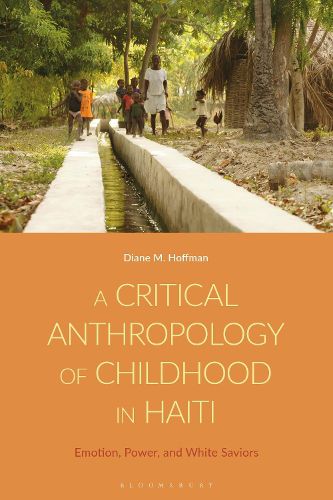Readings Newsletter
Become a Readings Member to make your shopping experience even easier.
Sign in or sign up for free!
You’re not far away from qualifying for FREE standard shipping within Australia
You’ve qualified for FREE standard shipping within Australia
The cart is loading…






This book offers a critical anthropological perspective on contemporary childhood in Haiti. It is based on longitudinal ethnographic fieldwork carried out over a period of 13 years with vulnerable children in Haiti. Diane M. Hoffman raises important questions about how interventions by well-meaning foreigners and 'white saviors' often misrepresent Haitian culture and society as deficient, while privileging their own emotions alongside supposedly universal ideas about children that reinforce their own power to define and intervene in Haitian lives. She argues for a new approach to Haitian childhood that centers children's informal learning and self-education alongside indigenous spirituality and constructions of personhood that can resist the hegemony of neo-colonial and neo-liberal forces. Instead of representing the country and its children as a place of "problems to be solved," the book shows the importance prioritizing aspects of Haitian world-views in order to develop a more culturally-informed understanding of childhood in Haiti that can support genuine social change.
$9.00 standard shipping within Australia
FREE standard shipping within Australia for orders over $100.00
Express & International shipping calculated at checkout
This book offers a critical anthropological perspective on contemporary childhood in Haiti. It is based on longitudinal ethnographic fieldwork carried out over a period of 13 years with vulnerable children in Haiti. Diane M. Hoffman raises important questions about how interventions by well-meaning foreigners and 'white saviors' often misrepresent Haitian culture and society as deficient, while privileging their own emotions alongside supposedly universal ideas about children that reinforce their own power to define and intervene in Haitian lives. She argues for a new approach to Haitian childhood that centers children's informal learning and self-education alongside indigenous spirituality and constructions of personhood that can resist the hegemony of neo-colonial and neo-liberal forces. Instead of representing the country and its children as a place of "problems to be solved," the book shows the importance prioritizing aspects of Haitian world-views in order to develop a more culturally-informed understanding of childhood in Haiti that can support genuine social change.